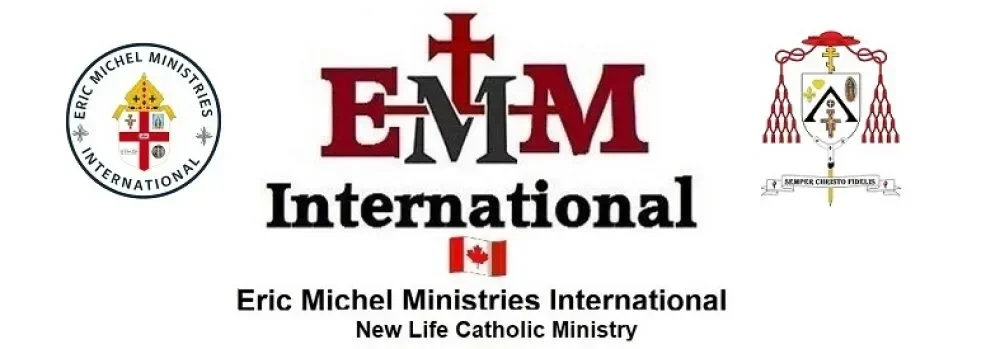How to give: Visit our main site https://franciscanseucharist.com/gifts/

The Concept of Tithing in Catholicism
- Not a Strict Requirement: Unlike in some other traditions, the Catholic Church does not mandate a strict tithe.
- Duty to Support the Church: The general duty to support the Church’s material needs is based on the Catechism and Canon Law.
- Personal Judgment: The amount and nature of contributions are left to the personal judgment of each individual, in line with the biblical teachings to give from the heart.
There isn’t a specific “tithe commandment” in the New Testament, but the concept of tithing, or giving a tenth of one’s income, is an Old Testament law found in verses like Leviticus 27:30, which stated a tenth of the land’s produce belonged to the Lord. In Christian traditions, this old law is often not seen as a binding commandment, but rather New Testament principles emphasize cheerful, generous, and proportionate giving based on passages like 1 Corinthians 16:2 and 2 Corinthians 9:7-8.
Corinthians 16:2 is a command from the Apostle Paul for Christians to regularly set aside money “on the first day of every week” in proportion to their earnings, saving it up for a collection for the saints. This proportional giving, based on income and prosperity, aimed to facilitate a unified collection for the Jerusalem church without needing collections when Paul eventually arrived.
Here’s a breakdown of the verse’s meaning:
- “On the first day of every week”: This refers to the “Lord’s Day,” or Sunday, the day Christians in Corinth gathered and when the resurrection of Jesus occurred.
- “Each one of you”: The command was universal, applying to everyone in the Corinthian church, regardless of wealth or status.
- “Set aside a sum of money…as he may prosper”: This indicates proportional giving, meaning each person should give a percentage of their income or a portion of their prosperity, rather than a fixed amount.
- “Saving it up, so that when I come no collections will have to be made”: The purpose was to prepare for a collection of money for the needy saints in Jerusalem, making the process efficient and preventing the need for collections upon Paul’s arrival.
2 Corinthians 9:7-8 is a passage about cheerful and generous giving. Verse 7 states that God loves a cheerful giver who gives as they have decided in their heart, not out of reluctance or compulsion. Verse 8 assures that God is able to bless givers abundantly, ensuring they always have enough to share in every good work.
2 Corinthians 9:7-8 (New International Version)
7 Each of you should give what you have decided in your heart to give, not reluctantly or under compulsion, for God loves a cheerful giver. 8 And God is able to bless you abundantly, so that in all things at all times, having all that you need, you will abound in every good work.
Key Themes
- Cheerful Generosity: The passage emphasizes giving with a joyful heart, rather than out of obligation or pressure.
- Personal Decision: Believers are encouraged to decide in their own hearts how much to give.
- God’s Abundance: God promises to provide generously, ensuring givers have enough for their own needs and for further acts of generosity.
- Purpose of Giving: The ultimate goal is to have enough to participate abundantly in every good work.
Old Testament Law
- The Ten Commandments: The Old Testament concept of tithing was a law given to the Israelites, primarily focused on agricultural and livestock products, and was a form of taxation to support the Levites and the temple.
- Examples in the Bible: Abraham and Jacob are cited as giving tithes to God before the Law of Moses was established, and the Israelites were commanded to tithe in Leviticus 27:30.
New Testament Principles for Christians
- No Specific Tithing Mandate: While Christians are still encouraged to give, the requirement to give exactly ten percent as outlined in the Mosaic Law is not considered a direct commandment for believers today.
- Principles of Giving: Instead, New Testament passages encourage giving based on principles such as Generosity: Giving according to what one can afford.
- Proportionality: Giving a proportionate amount of one’s income.
- Cheerfulness: Giving joyfully, not out of compulsion.
- Regularity: Giving systematically, as seen in the practice of setting aside a portion of income on the first day of the week.
- Focus on the Heart: The emphasis shifts from a strict percentage to giving with a willing heart, trusting in God’s ability to provide for every need.
The Catholic Church does not mandate tithing, but encourages a generous spirit of giving to support the church’s material needs, with many dioceses recommending a 5% contribution to the parish and an additional 5% to charities. While the traditional 10% is often cited and encouraged as a goal, the emphasis is on developing a grateful and generous lifestyle of stewardship and giving according to one’s abilities, rather than a strict legalistic requirement.
Theological Basis
- Duty of the Faithful: The Catechism of the Catholic Church states that the faithful have a duty to provide for the material needs of the church according to their means.
- Stewardship: Tithing is viewed as an act of worship and stewardship, recognizing that all gifts come from God and should be shared back.
- Historical Roots: The practice of tithing has roots in the Old Testament, which required a tenth of what was produced to be given to the Temple and clergy.
Recommendations and Practices
- 5%+5% Guideline: Many Catholic dioceses and experts suggest a target of giving 5% of take-home pay to the local parish and an additional 5% to other charities or charitable causes.
- A Goal, Not a Mandate: This 10% figure serves as a goal for many, a way to work towards a full tithe rather than a mandatory rule.
- Sacrificial Giving: The ultimate goal is sacrificial giving, which means giving to the point of need, rather than giving out of surplus.
How to Approach Tithing
- Start with What You Can: Begin by increasing your giving by a small amount, perhaps by 0.5% each year, until you reach a desired level.
- Review Your Budget: Look for ways to reduce discretionary spending to free up more money for charitable giving.
- Focus on Generosity: The most important thing is to cultivate a spirit of gratitude and generosity.
- Pray and Discern: Ask for guidance from God in discerning what portion of your time, talent, and treasure you are called to give

Parishioner Tithing to the Parish
- General Principle: The biblical tradition of tithing involves giving a portion of one’s income to God through the local church.
- Ideal Goal: Many Catholic dioceses encourage parishioners to give 10% of their income, often divided between their parish and other charities.
Allocation Example:
- A 5% contribution to the local parish for its operating costs.
- The remaining 5% could support diocesan programs, Catholic schools, private charities, or charitable causes of one’s choice.
Key Principles
Voluntary vs. Obligation: While tithing is an encouraged spiritual practice, particularly in the Catholic Church, there is no strict obligation to give a precise percentage.
Stewardship: Tithing is seen as a spiritual practice of “giving to God,” demonstrating gratitude and trust.
Local Variation: The specific percentages and structures can vary significantly between different dioceses and countries.

Parish Tithing to the Diocese
Parishes provide financial support to their diocese, but the specific percentage varies by diocese, with some recommending a 10% tithe from parishioners to the parish and then the parish contributes a portion to the diocese. A common model is for parishes to give 10% of their income to the diocese to fund diocesan ministries, which in turn support the broader Church’s work.
- Purpose: The funds a parish contributes to the diocese help support the diocese’s operations, ministries, and services, as well as national and universal Church initiatives.
- Method: Some dioceses have a structured system where parishes contribute a percentage of their income to the diocese. Example: In one model, the parish tithes 10% of its operational income to the diocese.

Support the Archdiocese
While there is no formal “tithe for the Metropolitan Archbishop,” Catholic dioceses worldwide send funds to the Archcathedral through the collection, and an annual collection used to fund charitable works and the budget. Though tithing is not mandatory, the Catechism of the Catholic Church teaches that the faithful have a duty to provide for the Church’s needs according to their abilities.
The primary way money is collected and sent to the Archdiocese from dioceses around the world.
- Voluntary Donations: Catholics are encouraged to contribute to Archdiocese, but it is not a mandatory obligation.
- Diocesan Collections: The collection is typically held at the diocesan level.
- Charitable Work: A significant portion of the funds supports the charitable activities of the Archdiocese.
- Budget: The money helps to supplement the Archdiocese’s budget, which covers various costs associated with the central administration of the Church.
- Missionary Activity: Some funds are allocated to support missionary work in various parts of the world.

How to give: Visit our main site https://franciscanseucharist.com/gifts/
